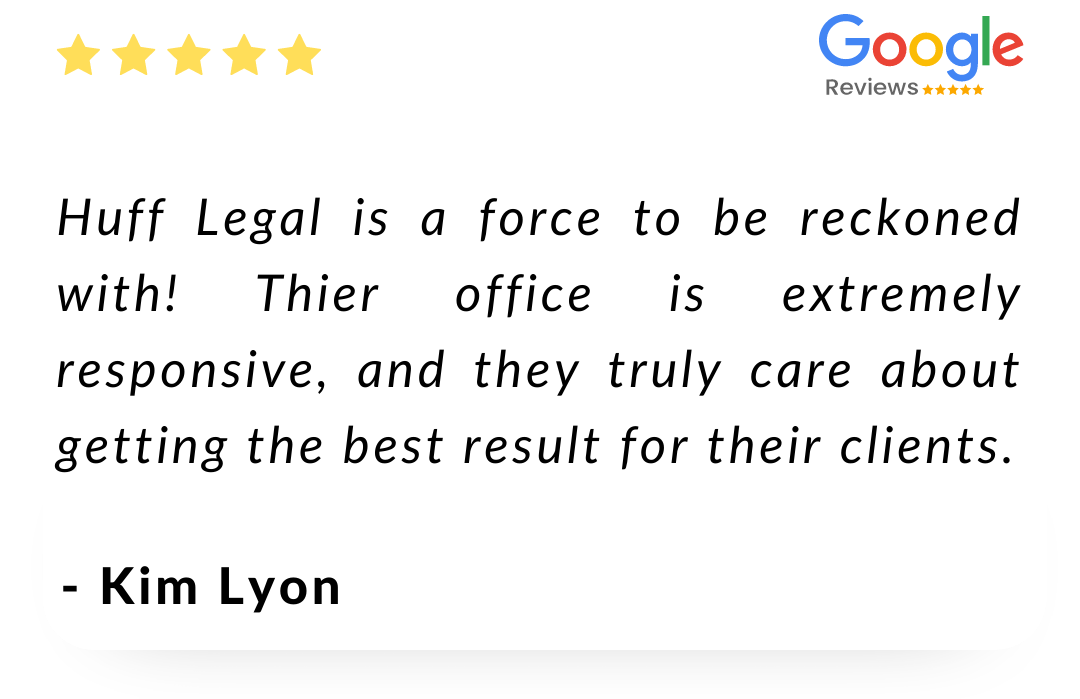Accessory to Murders Sentence: Understanding the Charges in California
Accessory to Murders Sentence: Understanding the Charges in California
In California, being an accessory to murder can lead to severe consequences, including a lengthy prison sentence. The legal complexities surrounding accessory-to-murder charges can be daunting, leaving you feeling overwhelmed and unsure of your future.
You may be wondering, “What exactly does it mean to be an accessory to murder, and what are the potential penalties?” This article will provide a comprehensive understanding of accessory-to-murder charges in California, including the legal definition, sentencing guidelines, and potential defenses.
What is an accessory to murder in California?
An accessory to murder in California refers to a person who assists another in committing murder or helps them evade capture after the crime. The involvement can include providing aid before or after the crime and demonstrating that the accessory had knowledge of the murder.
Accessory to murder meaning
Accessory to murder means aiding or assisting in the commission of murder, either by helping the principal offender before or after the crime. To be classified as an accessory, you must know that a crime is being committed or has been committed.
Knowledge of the crime
For someone to be considered an accessory to murder, they must know that a murder is being committed or has been committed. This knowledge is crucial in determining whether a person can be charged as an accessory.
Accessory before the fact
Accessory before the fact refers to a person who helps or encourages the murder to occur, showing intent to aid in the crime. This can include providing weapons, information, or other resources to assist in the commission of the murder.
Request a Free Consultation
Accessory versus conspirator
Accessory after the fact involves someone who assists the offender after the crime, often to help them escape or conceal evidence. This can include providing the offender a hiding place, transportation, or financial support.
Penalties for accessory to murder
An accessory is different from a conspirator. A conspirator plans the crime with the principal, but an accessory may be uninvolved before it happens. A conspirator actively participates in the planning and execution of the crime, while an accessory’s involvement may be limited to assisting before or after the fact.
Accessory to Murders Sentence: Penalties for accessory to murder
The penalties for accessory to murder in California can vary significantly depending on how the crime is charged. Suppose you’re accused of aiding and abetting. In that case, you may face the same penalties as the principal offender, which could result in life imprisonment without the possibility of parole for murder charges.
Accessory to murder sentence time
Accessory to murder sentence time largely depends on how the charge is classified. If you’re charged with aiding and abetting, you can face penalties similar to the principal offender, which may include life in prison for murder. However, if you’re charged with accessory after the fact, the penalties can range from a misdemeanor with up to a year in county jail to a felony with up to three years in state prison.
How long can you go to jail for accessory after the fact?
If you’re charged with accessory after the fact as a misdemeanor, you can face up to a year in county jail. However, if you’re charged with accessory after the fact as a felony, you can face up to three years in state prison. The specific sentence will depend on the circumstances of the case and your criminal history.

As Seen On












Defenses against 'accessory to murder' charges
If you’re facing accessory to murder charges, you have the right to raise a legal defense. An experienced attorney can help you present an effective defense that casts reasonable doubt on the charges against you, potentially leading to a reduction or dismissal of the charges.
You Did Not Encourage, Facilitate, or Aid The Crime Commission
If you did not actively contribute to the commission of the murder, you should not face aiding and abetting charges under PC 31. For example, suppose you were merely present in a vehicle with others who decided to rob a store and kill the attendant, but you did not participate or have prior knowledge of their plan. In that case, you can argue that you should not be held liable for the crime.
You Were Falsely Accused
False accusations of aiding and abetting a murder can arise from various reasons, such as someone trying to divert their own criminal culpability or acting out of revenge, anger, or jealousy. An attorney can investigate your case thoroughly and scrutinize witnesses to help fight any false accusations against you.
You Withdrew From Participation In The Murder
If you withdrew from participating in the murder before it occurred, you may be able to use this as a defense. Withdrawing involves informing the other persons involved in the crime about your intention to back out and doing everything in your power to prevent the crime from happening. However, simply leaving without acting to prevent the crime may not be sufficient to claim this defense.
You Did Not Have A Legal Duty To Act
In most cases, simply knowing that a crime is about to occur does not subject you to criminal charges unless you have a legal duty to report it. This legal obligation is conferred upon a person by law, and without it, you cannot be held liable for failing to prevent a crime you knew of.
How California Law Defines Murder
Under California law, murder is defined as the unlawful killing of another person with malice aforethought. The state recognizes two degrees of murder:
- First-degree murder: Characterized by the defendant killing another person with premeditation, deliberation, or while lying in wait.
- Second-degree murder: Occurs when the defendant kills another person through an intentional act but without the prior thought or contemplation that distinguishes first-degree murder.
Both degrees of murder are considered felony crimes and are punishable by imprisonment in a California state prison.
Being an accessory to murder is also a crime under California law:
- Accessory before the fact: Charged under PC 31, which covers aiding and abetting.
- Accessory after the fact: Charged under PC 32, which makes it an offense to harbor, conceal, or aid someone, knowing that the person has committed murder or a felony.
A violation of PC 32 is considered a wobbler offense, meaning that the prosecutor has the discretion to charge it as either a felony or a misdemeanor:
- Misdemeanor: Potential consequences include up to one year in county jail and a fine not exceeding $5,000.
- Felony: Penalties may include up to three years in county jail and a fine not exceeding $5,000.
What Clients Say About Us





Schedule Your Free Consultation Today
When Your Freedom is at Stake, You Need the Right Lawyer
If you’re facing accessory to murder charges in California, your freedom and future are on the line. You need an experienced and dedicated criminal defense attorney to fight for your rights and build a strong defense strategy.
At Huff Legal, we understand the gravity of your situation and are committed to providing you with the aggressive, compassionate representation you deserve.
Contact us today for a confidential consultation, and let us help you navigate this challenging time in your life.
FAQ
What's the difference between an accessory and a principal?
A principal is a person who directly commits the crime, while an accessory aids, facilitates, or encourages the commission of the crime. Accessories can be involved before or after the crime, but they do not directly participate in the criminal act itself.
What is an accessory in jail?
An accessory in jail refers to a person who is incarcerated for aiding, facilitating, or encouraging the commission of a crime, even though they did not directly participate in the criminal act. This can include assisting before or after the crime occurred.
What is an accessory to kidnapping?
An accessory to kidnapping is someone who helps or encourages another person to commit the crime of kidnapping, either before or after the act takes place. This can include providing transportation, weapons, or a place to hide the victim or assisting the perpetrator in evading law enforcement.
What is an accomplice to a crime?
An accomplice to a crime is similar to an accessory, as they aid, facilitate, or encourage the commission of a crime. However, the term “accomplice” is often used more broadly and sometimes includes principals who directly participate in the criminal act alongside other perpetrators.
Contact a Bay Area Accessory to Murder Lawyer Today!
If you or someone you know is facing charges as an accessory to murder, it is crucial to consult with a qualified criminal defense attorney who can provide personalized legal advice based on the specific circumstances of the case. They can help navigate the legal process, protect your rights, and provide guidance on the potential penalties you may face.
Hiring a competent and knowledgeable criminal defense attorney in the San Francisco Bay Area who can represent you in court is essential to defending yourself and preserving your future. Our Bay Area Accessory to murder lawyers at Huff Legal can use various strategies for the best possible outcome of your case.
LET HUFF HELP YOU
As a former police officer and patrol supervisor and his time spent as a United States District Court Judicial Law Clerk to the Chief Judge, Attorney Huff knows how to navigate all levels of the complex criminal law system. We also have more than 55 years of combined experience dealing with various complex criminal legal matters and have helped just over 1,500 clients over the past few years.
Why Huff Is Your Best Option For Criminal Defense
55+ Years of Combined Experience
At Huff Legal, we have more than 55 years of combined experience dealing with complex criminal legal matters, which can oftentimes be quite challenging. In order to get the outcome you deserve, you need a team of experienced attorneys on your side, who can help you navigate the legal system, so you can move past this situation and focus on the life ahead of you!
5 Star Rating on Google
We have a proven track record of success and are dedicated to our clients’ best interests. If you’re looking for a law firm that will always have your back, look no further than Huff Legal. Just have a look at some of our amazing client reviews over here!
1,500+ Happy Clients
Over the years, we’ve had the privilege of helping over 1,500 clients with their legal needs. When you work with us, you can be confident that you’re getting the best possible legal representation. We’re proud of our track record and our reputation for being a firm that delivers great results.
What Our Clients Say About Us


Sheila


Abel Resendiz


Manuela Frazier


Doris
Contact Huff Today
Request A Free Consultation
* Free consultations only available for Criminal Defense


In legal terms, an accessory to murder refers to an individual who aids, abets, or otherwise assists in committing a murder. While the specifics may vary across jurisdictions, California law treats accessories to murder as active participants in the crime, holding them accountable for their actions. In San Francisco Bay Area, there are two primary types of accessories to murder:
In the event that you find yourself in the Bay Area facing accessory to murder charges, you should first call a criminal defense attorney who can help you defend your rights and lessen the effects of the investigation. Contact an attorney at Huff Legal as soon as possible following your arrest. An accomplished attorney from Huff Legal will thoroughly examine your case, who will then develop a strategy and build a defense.
